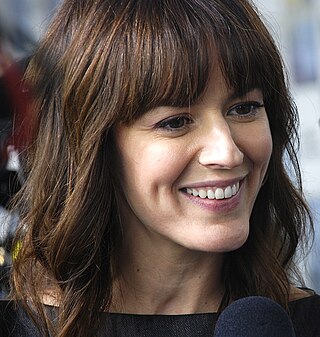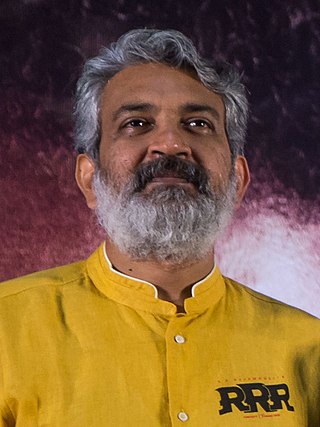Related Research Articles

Alfred Zinnemann was an Austrian Empire-born American film director. He won four Academy Awards for directing and producing films in various genres, including thrillers, westerns, film noir and play adaptations. He made 25 feature films during his 50-year career.

Jennifer Jason Leigh is an American actress. She began her career on television during the 1970s before making her film breakthrough as Stacy Hamilton in Fast Times at Ridgemont High (1982). She later received critical praise for her performances in Last Exit to Brooklyn (1989), Miami Blues (1990), Backdraft (1991), Single White Female (1992), and Short Cuts (1993).

Ned Washington was an American lyricist born in Scranton, Pennsylvania.

René Clément was a French film director and screenwriter. He is known for directing the films The Battle of the Rails (1946), Forbidden Games (1952), Gervaise (1956), Purple Noon (1960), and Is Paris Burning (1966). He received numerous accolades including five prizes at the Cannes Film Festival and the Honorary César in 1984.
The 25th Academy Awards were held on March 19, 1953 at the RKO Pantages Theatre in Hollywood, and the NBC International Theatre in New York City, to honor the films of 1952. It was the first Oscars ceremony to be televised, the first ceremony to be held in Hollywood and New York simultaneously, and the only year in which the New York ceremonies were held in the NBC International Theatre on Columbus Circle, which was shortly thereafter demolished and replaced by the New York Coliseum.
The New York Film Critics Circle (NYFCC) is an American film critic organization founded in 1935 by Wanda Hale from the New York Daily News. Its membership includes over 30 film critics from New York-based daily and weekly newspapers, magazines, and online publications. In December of each year, the organization meets to vote on the New York Film Critics Circle Awards, given annually to honor excellence in cinema worldwide of the calendar year. The NYFCC also gives special stand-alone awards to individuals and organizations that have made significant contributions to the art of cinema, including writers, directors, producers, film critics, film restorers, historians and service organizations. The NYFCC Awards are the oldest given by film critics in the country, and one of the most prestigious.
The San Francisco Bay Area Film Critics Circle (SFBAFCC), formerly known as San Francisco Film Critics Circle, was founded in 2002 as an organization of film journalists and critics from San Francisco, California based publications.
The 5th New York Film Critics Circle Awards, announced on 27 December 1939, honored the best filmmaking of 1939.

Rosemarie Braddock DeWitt is an American actress. DeWitt played Emily Lehman in the Fox television series Standoff (2006–07), co-starring with her future husband Ron Livingston, as well as Charmaine Craine on United States of Tara. She also was the title character in 2008's Rachel Getting Married, garnering several awards and nominations for best supporting actress. She starred as Ryan Gosling's sister Laura Wilder in the Oscar-winning movie La La Land. She also starred in the horror/thriller Poltergeist (2015), a remake of the 1982 film of the same name.
The 8th New York Film Critics Circle Awards, announced on 26 December 1942, honored the best filmmaking of 1942.
The 16th New York Film Critics Circle Awards, honored the best filmmaking of 1950.
The 17th New York Film Critics Circle Awards, honored the best filmmaking of 1951.
The 19th New York Film Critics Circle Awards, honored the best filmmaking of 1953.
The 27th New York Film Critics Circle Awards, honored the best filmmaking of 1961.
The 29th New York Film Critics Circle Awards, honored the best filmmaking of 1963.
The 36th New York Film Critics Circle Awards, honored the best filmmaking of 1970.

The New York Film Critics Circle Award for Best Director is an award given by the New York Film Critics Circle, honoring the finest achievements in filmmaking.
The New York Film Critics Circle Award for Best Foreign Language Film is one of the annual awards given by the New York Film Critics Circle.

James Elmo Williams was an American film and television editor, producer, director and executive. His work on the film High Noon (1952) received the Academy Award for Best Film Editing. In 2006, Williams published Elmo Williams: A Hollywood Memoir.

Billy Budd is a play by Louis O. Coxe and Robert H. Chapman based on Herman Melville's novella of the same name. Originally titled Uniform of Flesh, the play premiered Off-Broadway in 1949. Coxe and Chapman restructured and retitled the work for its Broadway debut in 1951. The revised version was a critical success, winning the Donaldson Award for Best First Play and the Outer Critics Circle Award for Best Play in 1951. In 1952 the play was adapted for the television anthology series Schlitz Playhouse of Stars, and Peter Ustinov adapted the play into a film which premiered in 1962.
References
- ↑ ""High Noon" Named Best Film Of Year". Ottawa Citizen. 27 December 1952. Retrieved 29 December 2017– via Google News Archive.